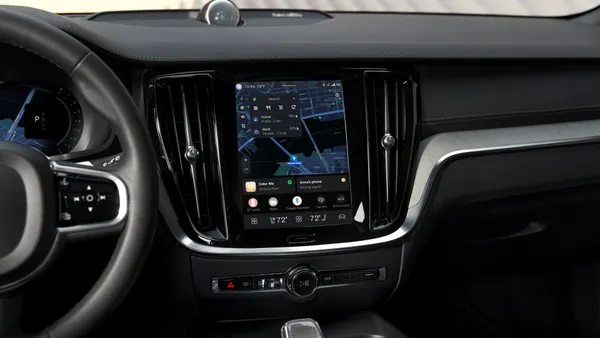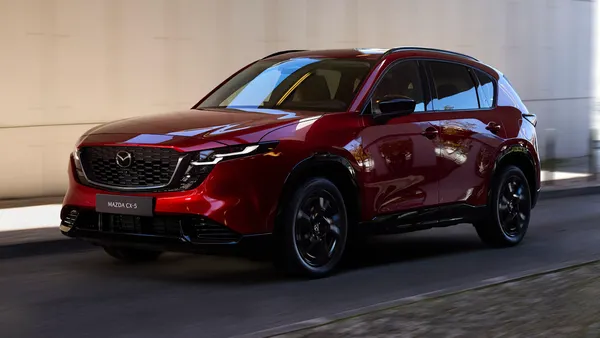Editor's note: This story is part of the WardsAuto digital archive, which may include content that was first published in print, or in different web layouts.
Driven by a massive Toyota Motor North America Inc. campaign to fix sticky accelerator pedals, U.S. auto makers are on track to record an increase in light-vehicle recalls for a second consecutive year.
A Ward’s analysis of National Highway Traffic Safety Admin. recall notifications through the first six months of this year shows auto makers selling in the U.S. have initiated 65 campaigns affecting 9.6 million cars and trucks.
The pace eclipses year-ago’s 54 recalls with implications for 4.4 million vehicles and puts the industry on track to exceed the 105 campaigns affecting 18.4 million cars and trucks in all of 2009.
Should auto makers issue more recalls in 2010 than 2009, it would mark the second consecutive year the industry has witnessed an increase since 2008’s 7.7 million-vehicle callback halted 2007’s surge to 12.5 million units.
Nonetheless, the 2000 recall record of 24.3 million units, when Ford Motor Co. wrestled with the Firestone tire debacle, appears safe.
Experts say overall industry quality continues to show improvement of roughly 5% to 6% annually. That’s good news to the auto makers’ bottom line, as recalls translate into higher warranty costs.
David Sargent, vice president-global vehicle research at J.D. Power & Associates, says higher recall numbers so far this year could reflect car companies’ worry of facing the public-relations nightmare Toyota has undergone for nearly 12 months.
The bad news continued this week with confirmation the auto maker will recall 270,000 Lexus-brand cars to address a potential stalling problem.
Toyota in June paid a $16.4 million civil fine for not reporting its sticky pedal problem to NHTA early enough. Industry analysts estimate the cost of making the fixes at a minimum of $2 billion that could grow to $4 billion. Toyota also could lose a couple of points of U.S. market share, they say.
“Companies are more likely to self-report problems (today) than they would have a year ago, just to get ahead of it,” Sargent tells Ward’s, noting it isn’t always clear to the auto makers, themselves, if a recall is warranted. “These things aren’t always black and white.”
He also says recalls are a poor measure of quality. “You can have a minor problem affecting millions of vehicles. Nothing is trivial, but not always representative of an entire vehicle line.”
Given its sticky-accelerator-pedal controversy, it appears Toyota might wear the dubious crown of recall king for the second consecutive year.
Through June, the traditional quality leader conducted 10 recall campaigns snaring 3.6 million cars and trucks. The pedal problem represented the lion’s share, sending 2.2 million of Toyota’s best-selling vehicles back to dealer service departments.
That recall affected eight different products from the auto maker, spanning model years ’05 through ’10. Toyota said Thursday 78% of the vehicles called back for the pedal problem have been repaired. Last year, poor-fitting floor mats led to the recall of 4.3 million Toyota vehicles, pushing its 2009 total to 4.8 million units.
The sticky-pedal campaign also affected 141,511 Pontiac Vibes, recalled by General Motors Co. out of the now-defunct New United Motor Mfg. Inc. joint-venture assembly plant operated with Toyota in Fremont, CA.
Toyota also was nicked this year by a broadened recall to fix more poor-fitting floor mats. The campaign called back another 1.2 million vehicles.
In addition, customer complaints about inconsistent brake feel in ’10 model-year Toyota Prius and Lexus HS hybrid sedans while braking over rough surfaces led to a recall of 148,549 units.
After watchdog-magazine Consumer Reports determined the Lexus GX 460 fullsize SUV was unsafe because it handled badly in sharp turns, the auto maker called back 9,400 units to fix software for the electronic stability control system.
Toyota also recalled 50,000 Toyota Sequoia fullsize SUVs earlier this year to fix an ESC bug.
The sticky pedal recall led the auto maker to temporarily stop selling affected vehicles, and Wednesday NHTSA Administrator David Strickland called for an expert review of the sudden-acceleration phenomenon across the auto industry.
Strickland’s appeal came during remarks to the National Academy of Sciences, which has opened an investigation into runaway vehicles.
While Toyota has dominated headlines over the issue this year – its owners have logged some 3,000 complaints of sudden acceleration with NHTSA since 2000 – Strickland says his office has received complaints linked to every major auto maker.
“Because the complaints of unintended acceleration occur across all manufacturers, and because of the rapid growth of electronic control systems in vehicles, we must do everything possible to fully understand if there are vulnerabilities in these systems that could cause unintended acceleration,” he says in his remarks.
Strickland wants a scientific document published on the academy’s findings, with details that include the causes and remedies for the problem.
The year’s second half does not appear to be starting well for Toyota, either. The auto maker today announced the recall of 270,000 Lexus brand vehicles worldwide to fix a potential problem causing engine stalls.
In comparison with Toyota, GM issued 10 recall campaigns through June affecting 2.9 million vehicles – second only to Toyota. The mid-year tally already has surpasses the auto maker’s total of 2.2 million units in 2009 and 1.7 million in 2008.
GM’s numbers were pushed up by two campaigns capturing some of its highest-volume vehicles.
The first was a possible electrical short within the heated washer-fluid systems of popular large SUVs and cross/utility vehicles, such as the Buick Enclave and Chevy Tahoe, that could lead to a fire. The callback included 1.4 million units. A first attempt at fixing the problem with a 2008 recall was unsuccessful.
GM’s second big recall this year netted 1.2 million Chevy Cobalt and Pontiac G5 compact cars, over concern their power-steering system could fail leading to greater driver effort at slower speeds.
American Honda Motor Co. conducted eight recalls in the year’s first six months, netting 1.2 million vehicles. The most far-reaching campaign captured 421,000 Honda Element CUVs and Odyssey minivans for potentially poor brake-pedal feel.
Ford Motor Co. continues to improve its performance, issuing only four recall campaigns through June that called back 36,452 vehicles. Chrysler Group LLC conducted six campaigns affecting 946,390 units.
Volume auto makers were not alone in their recalls. Italian exotic Automobili Lamborghini SpA called back 428 Murcielagos earlier this year for a potential fuel- pump leak.
Porsche Cars North America Inc. issued two campaigns affecting 3,185 vehicles – one to fix a seatbelt anchor on the German auto maker’s new Panamera sedan and the other to remedy a sunroof assembly on a handful of Boxter sports cars.
– with Christie Schweinsberg









